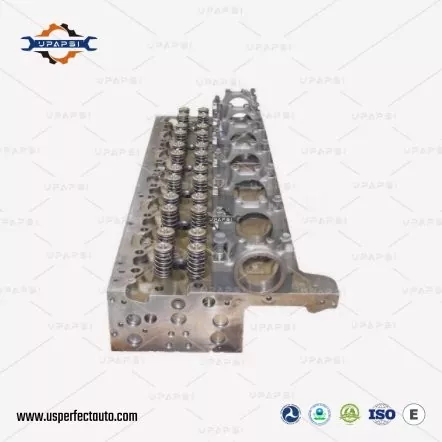Cylinder Head Material
2025-06-20
The cylinder head is a critical component in internal combustion engines, forming the top part of the engine block and housing vital parts such as the intake and exhaust valves, spark plugs, and fuel injectors. The choice of material for the cylinder head significantly influences the performance, durability, heat management, and manufacturing cost of the engine. This essay explores the commonly used materials for cylinder heads, their properties, advantages, and suitability for different engine types.
Common Materials Used in Cylinder Heads
Cast Iron
Cast iron was historically the most widely used material for cylinder heads due to its strength and durability. It is particularly well-suited for heavy-duty applications such as trucks, buses, and industrial engines. Cast iron offers excellent wear resistance and thermal stability. However, it is significantly heavier than other alternatives and has lower thermal conductivity, which can lead to higher engine operating temperatures.
Aluminum Alloy
In modern automotive applications, aluminum alloy has become the preferred material for cylinder heads, especially in passenger cars. It is much lighter than cast iron, which helps improve fuel efficiency and performance. Aluminum also has high thermal conductivity, allowing better heat dissipation, which is crucial for high-performance engines. However, it is more prone to warping under high heat and stress, and it is softer, making it more susceptible to wear and damage if not properly engineered.
Compacted Graphite Iron (CGI)
Compacted graphite iron is a newer material that combines the strength of cast iron with some of the lightness and thermal advantages of aluminum. It is used in performance diesel engines and some advanced gasoline engines. CGI offers improved fatigue resistance and better thermal properties than traditional cast iron, although it is more expensive to produce and machine.

Material Selection Criteria
The selection of a cylinder head material depends on various factors:
Engine Type and Application: Heavy-duty engines benefit from cast iron, while high-performance and fuel-efficient engines prefer aluminum.
Heat Management Requirements: Aluminum excels in heat dissipation, which is vital in turbocharged or high-compression engines.
Manufacturing Cost: Cast iron is cheaper and easier to machine in some applications, while aluminum often requires more precise casting and finishing.
Durability and Maintenance: Cast iron typically lasts longer under high-stress conditions, whereas aluminum requires better cooling and maintenance to avoid damage.
Conclusion
Cylinder head material plays a pivotal role in the performance, efficiency, and longevity of an engine. While cast iron remains a robust and cost-effective choice for heavy-duty applications, aluminum alloys dominate in modern automotive design due to their light weight and superior thermal properties. Emerging materials like compacted graphite iron offer a promising compromise between strength and thermal efficiency. As engine technologies continue to evolve, especially with the rise of hybrid and performance-focused vehicles, material innovation will remain key to improving engine design.
As a professional manufacturer and supplier, we provide high-quality products. If you are interested in our products or have any questions, please feel free to contact us.


